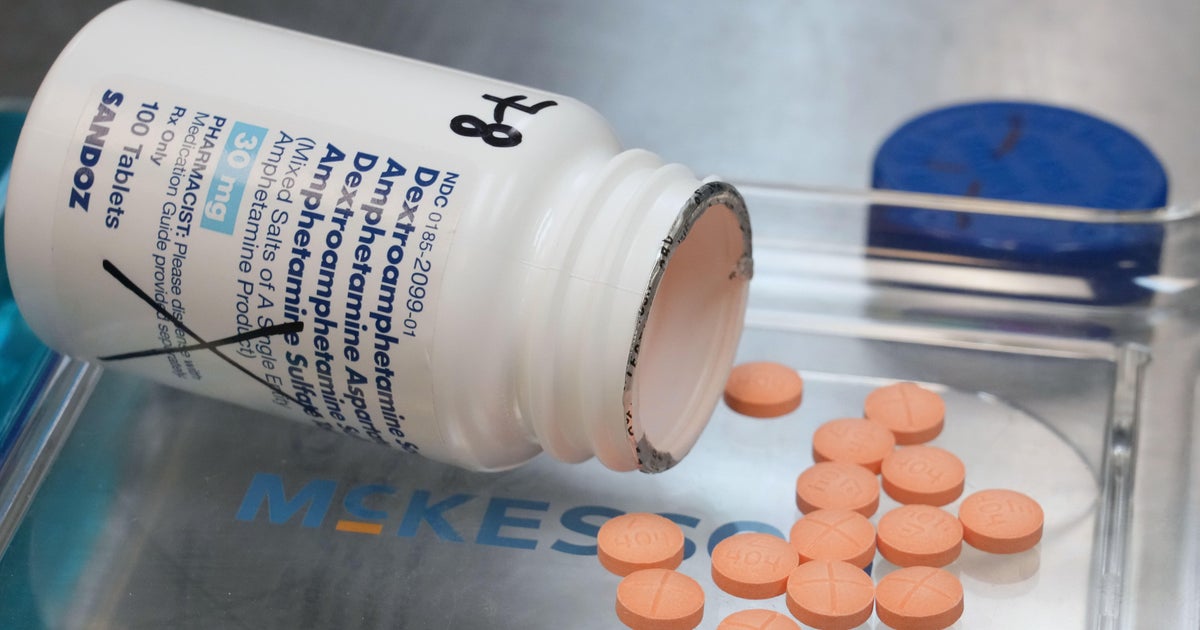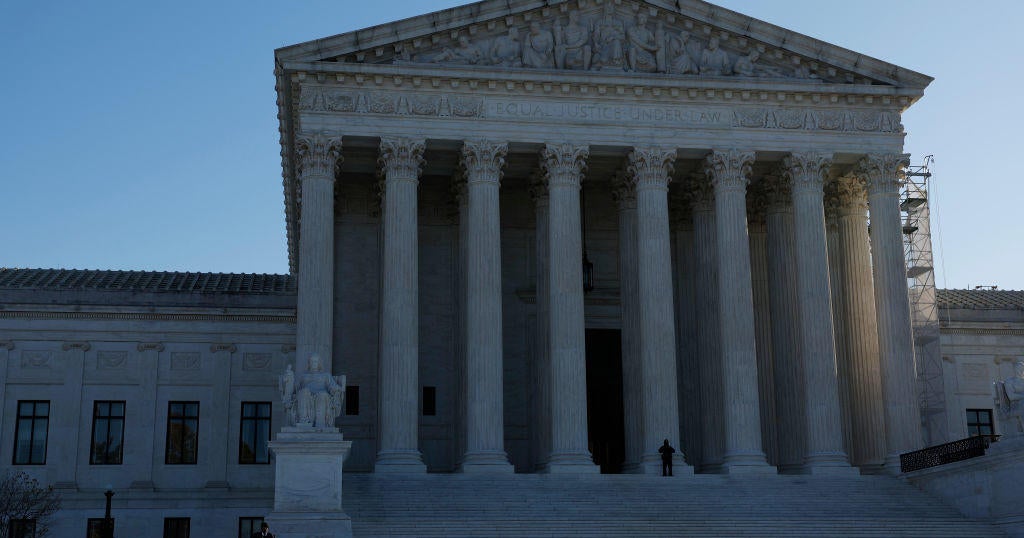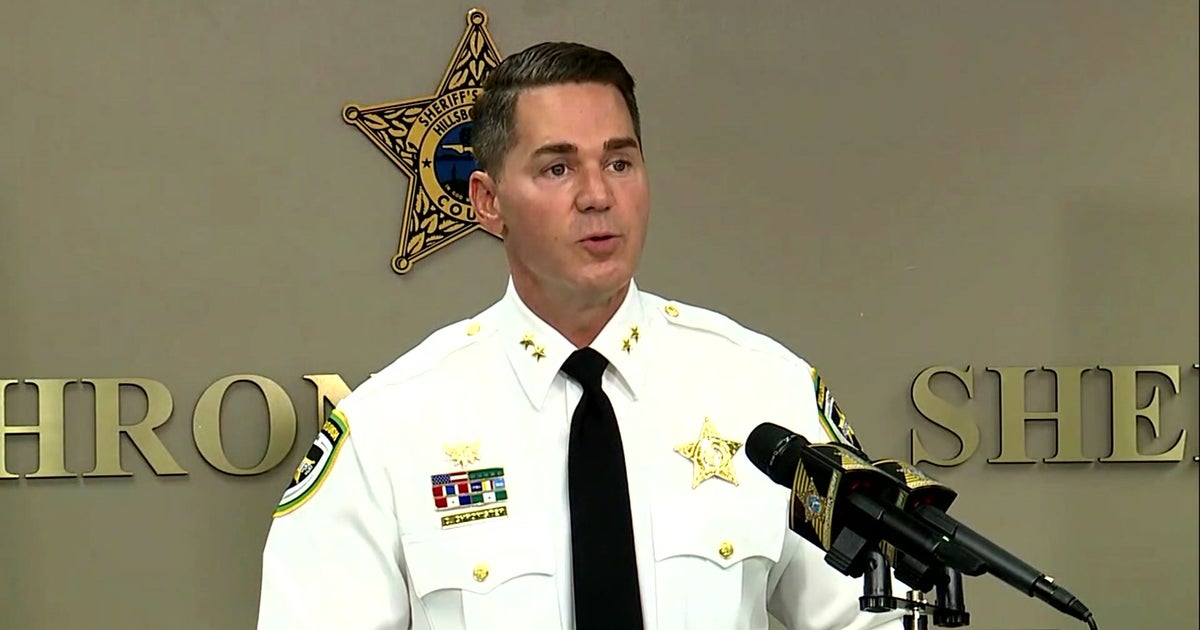CBS News
Why is there an ADHD medication shortage in 2024? What’s making generics of Vyvanse, Adderall and more so scarce

Supply from drugmakers for the stimulant medications most commonly prescribed for ADHD are still falling short of demand, the Food and Drug Administration says, and many Americans who rely on these treatments are wondering why the nationwide shortage is continuing into its second year.
Federal officials say they believe this year’s caps on production of the controlled substances — put in place by the Drug Enforcement Administration — will be enough to meet growing demand from patients in need of the treatments.
But those limits have prompted concerns that the DEA itself is exacerbating the shortage, with generic drugmakers saying they have run up against the federal quotas.
What’s causing the ADHD medication shortage?
Growing demand from patients in need of ADHD treatment and federal limits to supply have both been blamed for the ongoing shortages, among a number of factors.
Prescriptions for ADHD medications have grown in the U.S. and around the world in the wake of the COVID-19 pandemic. The FDA predicts that medical use of amphetamine, methylphenidate and lisdexamfetamine to treat ADHD and other diagnoses in the U.S. will climb 3.1% in 2024.
The FDA also said earlier this year it blamed “increased prescribing potentially related to the growth in telemedicine, supply chain issues, manufacturing and quality issues, and business decisions of manufacturers” for contributing to the ongoing shortages.
In response to the shortages and surging demand, the DEA has faced questions from lawmakers over the caps it has set on production of ADHD treatments. Those quotas are set each year by the agency limiting manufacturing of controlled substances.
Though the agency raised its limits for methylphenidate after that shortage began last year, the DEA has also blamed some drugmakers for not manufacturing up to their quotas. In November, officials said they would change the process to cut down on unused quotas.
It is unclear whether the DEA thinks its changes addressed the shortages. A spokesperson for the agency did not respond to multiple requests for comment.
In setting this year’s quotas, the DEA said it thinks its new limits will be enough for manufacturers to meet the increase in need for the ADHD treatments.
George Frey/Bloomberg via Getty Images
“DEA determined that the proposed APQs for amphetamine, lisdexamfetamine and methylphenidate are sufficient to supply legitimate medical needs, reserve stocks, and export requirements for 2024,” the agency wrote in a filing last month, in response to concerns about the ongoing ADHD treatment shortages.
Drugmakers have blamed the DEA’s quotas for frustrating efforts to boost manufacturing to meet demand.
“The production limit on the drug’s active ingredient is one of the main drivers for our inability to fully supply the market,” a spokesperson for Apotex, a drugmaker for a Vyvanse generic, said in a statement.
While a number of generic versions of Vyvanse scored FDA approval for the first time last year, nearly all of the newly-approved manufacturers say they are now facing shortages of lisdexamfetamine as they have tried to ramp up production.
“We have not been able to obtain enough raw material to commercialize the product at full commercial scale, and we have used our full quota for calendar year 2023,” the Apotex spokesperson said.
Is the shortage impacting generic drugs, too?
While drugmakers behind brand-name Adderall, Vyvanse and Concerta say their products are readily available, many generic manufacturers say they are struggling to keep up.
According to FDA records used to track drug shortages, manufacturers of amphetamine mixed salts — one of the most commonly prescribed stimulants to treat ADHD — remain unable to meet overall demand, amid a shortage that dates back to October 2022.
According to the FDA database, Teva Pharmaceuticals is “manufacturing and distributing” its Adderall medication “consistent with historic levels,” and it continues “to see unprecedented demand.” Despite that demand, the drugmaker said its branded Adderall products are all currently available without limits.
That is unlike some other versions of amphetamine mixed salts made by Teva, as well as competing generic drugmakers, which are listed as struggling to meet demand.
An FDA spokesperson said that the agency will continue to classify ADHD treatments as being in a drug shortage as long as data collected from drugmakers, combined with other market sales numbers, continue to show that demand for the medication is not being fully met by supply.
“The FDA does not consider a product to be in shortage if one or more manufacturers are able to fully supply market demand for the product,” FDA spokesperson Chanapa Tantibanchachai said in a statement.
Tantibanchachai said the agency “regularly works with manufacturers” to track drug shortages daily on their website.
Two other common ADHD treatments called methylphenidate and lisdexamfetamine dimesylate also remain in shortage, according to the agency’s records, since the FDA first announced supply shortfalls in July last year.
Similar to amphetamine salts, brand name versions of those two treatments — Concerta and Vyvanse — are not facing shortages, according to the FDA, but generic versions are.
“There has been no change in the supply status of branded CONCERTA, which continues to be available without interruption,” a Johnson & Johnson spokesperson said in a statement. “CONCERTA generics entered the market in 2011, and a majority of prescriptions today are filled by generic manufacturers.”
Vyvanse faced a shortage over the summer last year, though the company now says its products are available.
“We resolved the June, 2023 U.S. branded Vyvanse manufacturing delay for 40mg capsules in July and the two remaining impacted capsule doses of 60mg and 70mg in September,” a spokesperson for Takeda, manufacturer of brand name Vyvanse, said in a statement.
How can those with ADHD access their prescriptions?
Doctors say patients in search of ADHD prescriptions that are out of stock at their local pharmacy typically have little choice except to either call around or visit other drug stores in search of supplies of the drug they were prescribed.
Patients can also talk to their doctor about trading off for another pricier or less preferable prescription, though that can sometimes lead to a frustrating search between insurance coverage hurdles and multiple ADHD treatments facing shortages.
“Often, the pharmacy’s supply is depleted by the time the parent gets to the pharmacy which sets into motion a looping cycle of parent-to-prescriber-to-pharmacist search for medication supply,” the heads of the American Academy of Child and Adolescent Psychiatry and American Psychiatric Association wrote in a letter last year to the FDA.
Switching to another medication also can carry risks and cannot always be done overnight, requiring patients to work closely with their doctors.
“They may expect an adjustment period of going off one med and on another. You will always have that period of time where you’re sort of washing out of one medicine and adding a new one on,” Mark Hotlan, specialty pharmacy manager at Minnesota’s Hennepin Healthcare, told CBS Minnesota.
Regulations imposed on pharmacies governing controlled substances can also complicate the search for these medications, pharmacy trade groups have said, worsened by limits on how these stimulants can be stocked and distributed.
“Unfortunately, some pharmacies may not provide information over the phone if you call to check on the stimulant medications that they have available in stock. This is sometimes due to pharmacist concerns about drug-seeking behaviors,” Dr. Andrew Adesman and Dr. Anna Krevskaya wrote in an article published last year by Attention Magazine outlining several tips for patients during the shortage.
Adesman and Krevskaya suggest requesting that pharmacists look up patient names in state prescription monitoring programs, to assuage their concerns, and asking for advice about when or where more supplies might be available.
Other tips they suggest include starting the process to request a refill as soon as possible, typically around three-and-a-half weeks after the last prescription was filled.
“Perseverance, flexibility, and creativity are key to success in dealing with the ongoing shortage of various ADHD stimulant medications,” they suggest.
Full list of ADHD medication shortages
The FDA’s database counts all three of the frequently prescribed ADHD stimulant medications as in shortage: methylphenidate, amphetamine mixed salts and lisdexamfetamine.
The shortage of amphetamine mixed salts includes medications using amphetamine aspartate monohydrate, amphetamine sulfate, dextroamphetamine saccharate and dextroamphetamine sulfate. This grouping of drugs includes brand name Adderall, though only generic versions are listed as facing limits to their availability from these drugmakers:
- Aurobindo Pharma
- Granules Pharmaceuticals
- Lannett Company
- SpecGx LLC
- Teva Pharmaceuticals
Takeda says a shortage of its brand-name Vyvanse medication was resolved within two months after a manufacturing delay last year, though other manufacturers of lisdexamfetamine dimesylate say they are not fully available:
- Alvogen
- Amneal Pharmaceuticals
- Apotex Corporation
- Hikma Pharmaceuticals
- Lannett Company
- Mylan Pharmaceuticals
- Rhodes Pharmaceuticals
- Solco Healthcare
- SpecGX LLC
Johnson & Johnson also says their branded Concerta product remains available with limits to supply, though some generics of extended release methylphenidate hydrochloride are in shortage from these manufacturers:
- Dr. Reddy’s Laboratories
- Lannett Company
- SpecGX LLC
- Sun Pharmaceutical Industries
- Teva Pharmaceuticals
CBS News
What to know about the charges in UnitedHealthcare CEO’s killing

Watch CBS News
Be the first to know
Get browser notifications for breaking news, live events, and exclusive reporting.
CBS News
Prominent pro-Putin ballet star Sergei Polunin says he’s leaving Russia

Moscow — Former Royal Ballet star Sergei Polunin, famous for his tattoos of Russian President Vladimir Putin, on Wednesday announced that he plans to leave Russia. The Ukrainian-Russian dancer was one of the most prominent stars who backed Russia’s unilateral 2014 annexation of Crimea and its military assault on Ukraine. He was rewarded with prestigious state posts.
In a rambling, misspelled message on his Instagram account, Polunin wrote: “My time in Russia ran out a long time ago, it seems at this moment that I have fulfilled my mission here.”
The post first appeared Sunday on his little-read Telegram account.
Ian Gavan/Getty
Polunin, 35, did not give a specific reason for leaving but said that “a time comes when the soul feels it is not where it should be.”
He said he was leaving with his family — his wife Yelena and three children — but “where we will go is not clear so far.”
In the summer, the dancer complained of a lack of security and said he was being followed.
Polunin, who was born in Ukraine, backed Putin’s 2014 annexation of Crimea — a prelude to the ongoing, full-scale invasion of Ukraine that Putin launched in February 2022.
The dancer was granted Russian citizenship in 2019. He was appointed acting head of a dance academy in occupied Crimea’s biggest city, Sevastopol, and director of the city’s opera and ballet theatre, for which a large new building is under construction.
Just last year he was decorated by Putin for his role in popularizing dance. But in August he was replaced as head of the dance academy by former Bolshoi prima Maria Alexandrova, and a week ago, Russia’s arts minister Olga Lyubimova announced his theater director job would go to singer Ildar Abdrazakov.
This came after on December 9 Polunin published a social media post saying he was “very sorry for people” living in the heavily bombarded village near Ukraine’s city of Kherson, where his family originates from, and that “the worst deal would be better than war.”
Ian Gavan/Getty
Aged 13, Polunin won a scholarship to train at the Royal Ballet School in London and became its youngest ever principal dancer.
With his tattoos — including a large depiction of Putin’s face emblazoned prominently on his chest — and his rebellious attitude, he became known as the “bad boy of ballet” and caused a sensation by resigning from the Royal Ballet at the height of his fame in 2012.
Later he made a 2015 hit video to Irish musician Hozier’s song “Take Me to Church” and was the star of a 2016 documentary called “Dancer.”
He moved to perform at Moscow’s Stanislavsky Musical Theatre’s ballet before launching a solo career, starring in dance performances in roles including the mystic Grigory Rasputin.
In 2019 he posed for AFP with a large tattoo of Putin on his chest which he later supplemented with two Putin faces on either shoulder. He also has a large Ukrainian trident on his right hand.
This year he took part in Putin’s campaign for reelection as a celebrity backer.
CBS News
Supreme Court takes up South Carolina’s effort to defund Planned Parenthood

Washington — The Supreme Court on Wednesday agreed to consider South Carolina health department’s effort to cut off funding from Planned Parenthood because it performs abortions, wading into another dispute over access to the procedure in the wake of its reversal of Roe v. Wade.
The case, known as Kerr v. Edwards, stems from the state’s decision in 2018 to end Planned Parenthood South Atlantic’s participation in its Medicaid program. Gov. Henry McMaster, a Republican, directed the South Carolina Department of Health and Human Services to deem abortion clinics unqualified to provide family planning services and end their Medicaid agreements.
Planned Parenthood operates two facilities in the state, one in Charleston and the other in Columbia, and provides hundreds of Medicaid patients with services like physicals, cancer and other health screenings, pregnancy testing and contraception. Federal law prohibits Medicaid from paying for abortions except in cases of rape or incest, or to save the life of the mother.
Planned Parenthood and one of its patients, Julie Edwards, sued the state, arguing that cutting off its funding violated a provision of the Medicaid Act that gives beneficiaries the right to choose their provider.
A federal district court blocked South Carolina from ending Planned Parenthood’s participation in its Medicaid program, and a U.S. appeals court upheld that decision, finding that Edwards could sue the state to enforce the Medicaid Act’s free-choice-of-provider requirement.
The legal battle has already been before the Supreme Court in the past, with the high court last year ordering additional proceedings after deciding in a separate case that nursing home residents could sue their state-owned health care facility over alleged violations of civil rights.
After reconsidering its earlier decision, the three-judge appeals court panel ruled unanimously in March that Edwards’ lawsuit against the state could go forward and said South Carolina couldn’t strip Planned Parenthood of state Medicaid funds.
“This case is, and always has been, about whether Congress conferred an individually enforceable right for Medicaid beneficiaries to freely choose their healthcare provider. Preserving access to Planned Parenthood and other providers means preserving an affordable choice and quality care for an untold number of mothers and infants in South Carolina,” Judge Harvie Wilkinson wrote for the 4th Circuit panel.
South Carolina officials asked the Supreme Court to review that decision, marking the third time the case has been before the justices. The justices agreed to take up the question of whether “the Medicaid Act’s any-qualified provider provision unambiguously confers a private right upon a Medicaid beneficiary to choose a specific provider.”
South Carolina is among the more than two dozen that have passed laws restricting access to abortion in the wake of the Supreme Court’s June 2022 decision reversing Roe v. Wade. In South Carolina, abortion is outlawed after six weeks of pregnancy with some exceptions.
Several states have also enacted laws blocking Planned Parenthood from receiving Medicaid funding, including Arkansas, Missouri, Mississippi and Texas.











